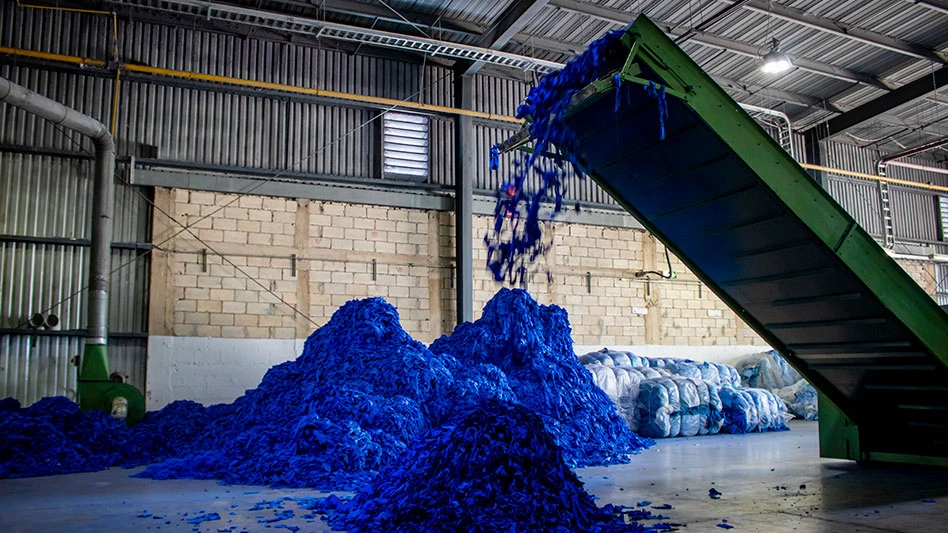
Photo courtesy of Accelerating Circularity
Accelerating Circularity, a New York-based nonprofit dedicated to transforming the apparel industry by creating business models and supply chains for manufacturing more sustainable fabrics, has announced a new commitment to building circular systems.
The group’s Commitment to Action was announced at the Clinton Global Initiative (CGI) 2024 Annual Meeting.
Titled “Building Circular Systems,” the commitment aims to building scalable circular systems where materials are continuously repurposed and reused rather than being recycled only once or discarded. Circularity keeps materials in use longer, ultimately reducing waste and conserving natural resources, the group says.
Currently, 92 million tons of textiles end up in landfills each year, while another 116 million tons of new fibers are produced, according to Accelerating Circularity. As discarded textiles decompose in landfills, the group says, they release harmful gasses into the environment. Additionally, manufacturing new textiles consumes large amounts of water, energy and chemicals, further damaging the environment.
Accelerating Circularity's commitment will focus on three key initiatives:
1. Building a market for recycled textiles: Accelerating Circularity will collaborate with brand, retail and manufacturing partners across the U.S. and Europe to recycle 325 tons of used textiles, including 150 tons of cotton, 100 tons of polyester and 75 tons of other fibers. The goal is to create a strong market where recycled textiles are used to make new products that people want to buy.
2. Creating a used textile mapping tool: A comprehensive map, the platform will outline the entire recycling ecosystem by pinpointing collectors, sorters, processors, recyclers, fiber producers, yarn spinners, fabric mills and product manufacturers who can repurpose used textiles into new fibers. It will streamline the recycling process for textiles from various sources—including fabric mills, brands, retailers and consumers—by identifying the most efficient and environmentally sustainable pathways for converting these materials into new products.
3. Educational resources: Educational materials will be developed to help brands and consumers understand how to responsibly dispose of and recycle textiles.
The commitment launched at CGI on Sept. 23 and is set to be completed by March 2026. During this time, Accelerating Circularity will leverage its relationships and foster new alliances with major brands, retailers and recyclers to build the use of circular systems, creating new market opportunities and helping companies reduce their environmental impact.
“I’m honored to lead this important initiative to change the textile industry,” says Karla Magruder, president and founder of Accelerating Circularity. “Our work, amplified by the Clinton Global Initiative, will help us make a difference by reducing waste and pollution and promoting sustainability worldwide. We invite businesses, organizations and individuals to join us in this effort and help create a more sustainable future for textiles.”
Latest from Waste Today
- Mount Vernon, Ohio, city council tightens waste hauling regulations
- Retail associations sign MOU to form producer responsibility organization for textiles in California
- Republic Services partners with EDL to provide RNG for San Antonio buses
- WM opens 12 recycling facilities in 2024
- Plastics recyclers report difficult conditions
- BTS Bioenergy opens Maryland Organics Recovery Center
- Meadow tabs aluminum as key to boosting beauty sector recycling
- LFG-to-energy: Maximizing returns with multitiered methane monitoring





